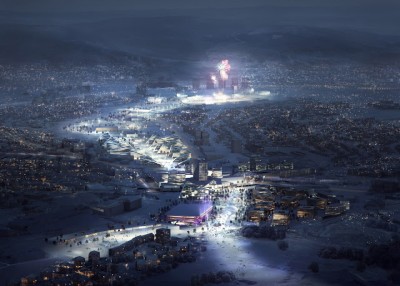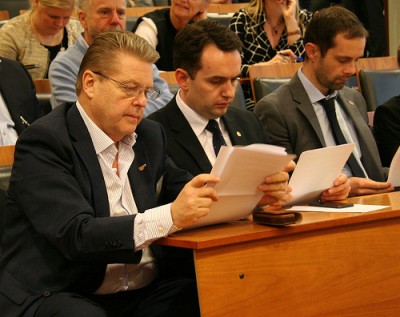Norwegian sports and city officials did a bad job of fronting their failed bid to host the Winter Olympics in 2022 and have themselves to blame for its lack of public support, according to a new report on the expensive Olympic project. The report suggests that the country’s powerful athletic lobby also needs to become more professional and pay more attention to opposition and criticism.

The report, prepared by a commission made up of officials within the sports world itself, largely concluded that the Olympic project collapsed under the weight of sports bureaucrats’ own arrogance. It also cited poor communication between leaders of Norway’s athletics federation NIF (Norges Idrettsforbund) and the City of Oslo, poor organization of their Olympic bid, and a lack of support from the grass roots level of NIF. The report was delivered to the governing board of sports organizations in Norway, Idrettsstyret, on Wednesday.
Oddvar Johan Jensen, leader of the commission that wrote the report, said it contained two main recommendations: Any future Olympics bid must be fronted by a single, unified organization that represents all involved parties, instead of the two parallel city- and sports organizations that failed to succeed with the 2022 project. Any future bid must also have a unified, comprehensive communications plan that’s “owned” by all involved.

Members of the commission who prepared the report included, among others, the president of Norway’s football federation Yngve Hallén, former cross country skiing star and athletics official Odd Martinsen and the president of the Norwegian ice hockey federation Gerhard Nilsen. They were tough in their criticism of their own national organization, which has been led by NIF Secretary General Inge Andersen and NIF President Børre Rognlien. Both were highly active in the Olympic project that the state government finally halted, and Rognlien has already said he will not seek reelection to his post.
The so-called “Oslo2022” project never sparked national public enthusiasm, not even within Oslo itself. Norway is a nation of winter sports fans, but many objected to what they viewed as the arrogance of the Olympic movement, and they worried about the huge bills they may end up having to pay when it was all over. As it was, the city spent more than NOK 200 million on the project until the state, which had to put up a financial guaranteed, decided to pull the plug. It was the third Olympic project since the successful 1994 Winter Games in Lillehammer to be stopped. Many have also stranded in other countries, usually over costs and the demands made by the International Olympic Committee (IOC).
Unprepared
According to the new evaluation report, NIF officials were simply unprepared for the opposition that arose, mostly over the looming costs that many believed were underestimated. They also failed to address the criticism that arose against the IOC and over the enormous expense of the Winter Olympics in Sochi last year. NIF officials didn’t manage to justify why they backed an Olympics, or to explain what an Olympics would mean for Norwegian athletics and the nation as a whole. Several athletics organizations in Norway feared they would suffer instead of benefit from an Olympics, even though 90 percent of the delegates to a national athletics convention voted in favour of it.
Newspaper VG reported that Norway’s judo federation, for example, wrote in its contribution to the report that “we think a considerable amount of the organizations that voted ‘yes’ in practice were voting ‘not opposed.’ By that we mean they were skeptical and in doubt and not enthusiatic, but didn’t want to destroy the project.”
Ignored signals
Neither Andersen, Rognlien nor other athletics and city officials picked up such signals, and many still haven’t admitted that they made mistakes. The reported noted, though, that NIF had complained it was left out of several aspects of the Olympic process, which was controlled by the city government. Even though they had a cooperation agreement, NIF officials claimed they were not involved in such decisions as the “Games in the City” concept for Oslo2022, the choice of event venues or the communications strategy.
On Wednesday, Rognlien said upon receiving the report that he hoped the athletics organization might learn something from the report, and that the report will contribute towards allowing them to “carry out the process next time.” He said he was certain another bid would be mounted “within the next generation,” but that he would not be involved.
newsinenglish.no/Nina Berglund

